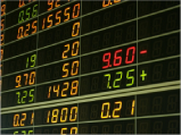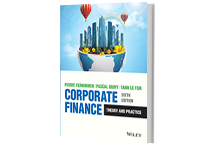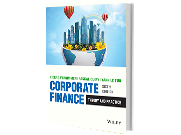Comment, question or quotation of the day
29-10-2024 : Tribute to John McQuown, passive investing pioneer
In 1971, John McQuown created the first investment fund to replicate the performance of an index, thus creating index investing (also known as passive investing), whose assets under management today exceed $20,000 billion. He passed away a few days ago at the age of 90. An engineer by training, he had been hired by the innovation center of Wells Fargo, then just a regional Californian bank.
In 1970, an heir to the family that owned Samsonite was looking for a team that could manage $6 million, or around $47 million today, according to the principles he had learned in Chicago studying the work of Harry Markowitz, William Sharpe, Eugene Fama, Merton Miller, Myron Scholes and Fisher Black, all young finance professors who had just created the CAPM or Capital Asset Pricing Model, in other words, modern finance. They had also demonstrated that, over time, active managers underperformed the market. As The Vernimmen.com Newsletter reminds us in its October issue, only 17% of active equity managers have beaten their benchmark over the past 10 years.
It is therefore more efficient to hold the market portfolio represented by an index fund (ETF), and then adjust your level of risk by adding risk-free assets to run less risk than the market; or by taking on debt to invest in the market portfolio if you want to increase your risk relative to the market. More efficient, because management and transaction costs are lower, and because no random bets are made on this or that stock.
In July 1971, John McQuown launched the first index fund on behalf of the Samsonite pension fund, and a new stage in collective asset management was launched. Like all trailblazers, John McQuown had to battle against prevailing skepticism and, above all, the criticism of asset managers who saw passive management as a far inferior source of income to active management. But he had on his side the research of the aforementioned scientists, all of whom went on to win Nobel Prizes in economics a few decades later.
53 years on, I've just sat on the selection committee for a new employee savings fund manager at an institution of higher education. Although the specifications explicitly called for at least one equity-index fund, only one of the six candidates proposed one in its response to the invitation to tender, and it won the contract.
While employee savings schemes have been pioneers in ESG investment, thanks to employees and their representatives, there is still much to be done in terms of investing efficiency, with passive equity investing virtually non-existent in this field, where the few players do not play up to the innovation that is so embarrassing for their margins, unless you insist on it.
21-09-2024 : Vivendi, or the lenders who applaud a demerger with both hands
As a general rule, a demerger that reduces the diversity of a group's businesses is not well received by lenders, since their level of risk increases with the concentration of activities that results from a demerger. Indeed, the cash flows generated by each division of a group are naturally pooled within the group that combines them to service the latter's debt. Once split into independent entities, cash flows are naturally no longer mutualized, and the lenders of each of these now independent divisions can only rely on the cash flows generated by each division to service the debt allocated to it in the demerger.
As a result, lenders have long reserved the right to obtain early repayment of their loans/bonds at face value, or even slightly more, in the event of a demerger (or even in the event of a simple announcement).
When a phase of sharply rising interest rates pushes the value of bonds well below par, the subsequent announcement of a demerger is a godsend for lenders, who suddenly see the value of their bonds approaching par, despite a below-market rate of return on these loans. This is exactly what has been happening for several months with Vivendi bonds. A year ago, before any announcement of the demerger project, the 2016 bond maturing in 2026, yielding 1.875%, was quoted at 94.3% of par, due to a market rate of 4.10%. The bond is currently trading at over 99%, in anticipation of redemption at par by the end of the year, when the demerger is scheduled to take place. For a bond investor, a price increase of 7% in one year, including coupon, is considerable for a BBB-rated bond.
The demerger candidate must refinance its debts, i.e. negotiate with banks to take out loans that will be used to prepay the bonds. These bank loans are then allocated between the various entities to be demerged. Only when the demerger is complete can the demerged entities issue bonds to repay the bank loans set up as bridging loans. For Vivendi, this involves €2,750 million.


Glossary
The Vernimmen.com glossary provides definitions for a couple of thousands of financial, stock market or economic terms.
This financial dictionary allows beginners to progress in their learning of finance and to experts to cease the precise meaning of a sentence.

Quiz
The Vernimmen.com Quiz offers over 300 questions with answers to progress in your understanding of finance and to test your knowledge.
Questions are sorted by key topics (financial analysis, investment and stock markets, value, financial engineering and financial management).

Survey
We frequently ask our readers to give us their point of view on a specific topic.
You will find here the current survey with the to-date status of answers as well as past polls.

Financial data
Thanks to our partner Infinancial, we can offer on this page financial data on over 16 000 groups around the world.
Updated several times a year, this database offers information sometimes hard to find elsewhere (beta, …)
The Vernimmen.com Letter
Number 159 of October 2024
News : Teck / Glencore, a stock market battle over coal in search of value and respectability
Statistics : Active versus passive funds
Research : he role of trade receivables in value chain stability
Q&A : Two merger and acquisition exercises
COMMENTS : Comments posted on Facebook



